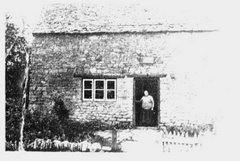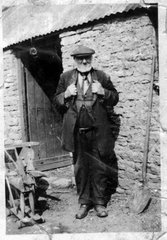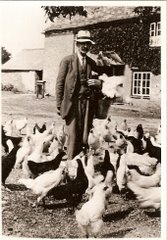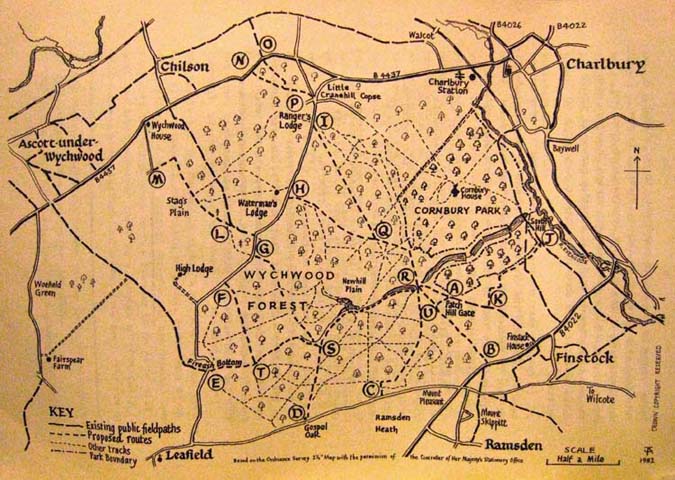By ROY TOWNSEND
Finstock used to have three shops. One was in School Road and at one time was a Fish and Chip shop, run by Tommy Franklin who I believe came from Birmingham. The second was in The Bottom and was run, with the Post Office, by Mrs. Dore and her two daughters Nellie and Meeme. There was a third shop at the Crown Public House which sold sweets, sugar and tea, but was mostly run as an off-licence.

Finstock used to have three shops. One was in School Road and at one time was a Fish and Chip shop, run by Tommy Franklin who I believe came from Birmingham. The second was in The Bottom and was run, with the Post Office, by Mrs. Dore and her two daughters Nellie and Meeme. There was a third shop at the Crown Public House which sold sweets, sugar and tea, but was mostly run as an off-licence.

There were two other Cottage Shops which I can remember. One was run by Mrs. Harris who lived where David Pratley lives now, up the High Street, and was, I believe, his grandmother; they also sold fruit. My first banana came from there. The other shop was run by Harry Woolford, who was my uncle, my mother's elder brother. He sold cigarettes, tobacco, tea, sweets and chocolate. (See photo above which shows the licence to sell tobacco and cigarettes.)
The coming of the war saw the end of these little shops, except for The Crown which continued as an off-licence.
The coming of the war saw the end of these little shops, except for The Crown which continued as an off-licence.
The Waterloo Arms, which was at the crossroads at the top of the High Street, had a licence to sell beer and spirits, and is now turned into houses. Mr. Howse, who used to have the Waterloo Arms, also had a blacksmiths shop. I have very happy memories of spending time, as a boy, pumping the bellows on his forge, making his fire burn away. I used to take our cart horse there for him to shoe. The horse would kick at Mr. Howse, but it didn't seem to worry him, but how I hated that horse. Mr. Howse had a pocket watch that he bought from a soldier in the First World War which worked by a chain which ran around the outside of the case. He had a great deal of patience to put up with me running around his forge and burning his fire away.
In the fifties, the forge went and in its place Cyril, Mr. Howse's son, had a petrol station and shop. It is said the Waterloo Arms lost its licence to sell beer and spirits on the premises because Finstock and Leafield men used to meet there and fight -- and a Leafield man died in a fight in Pound Bottom on Leafield Road. But no one seems to have ever been held responsible, but it could have been murder. One for Shaun to look into perhaps!
In the fifties, the forge went and in its place Cyril, Mr. Howse's son, had a petrol station and shop. It is said the Waterloo Arms lost its licence to sell beer and spirits on the premises because Finstock and Leafield men used to meet there and fight -- and a Leafield man died in a fight in Pound Bottom on Leafield Road. But no one seems to have ever been held responsible, but it could have been murder. One for Shaun to look into perhaps!







